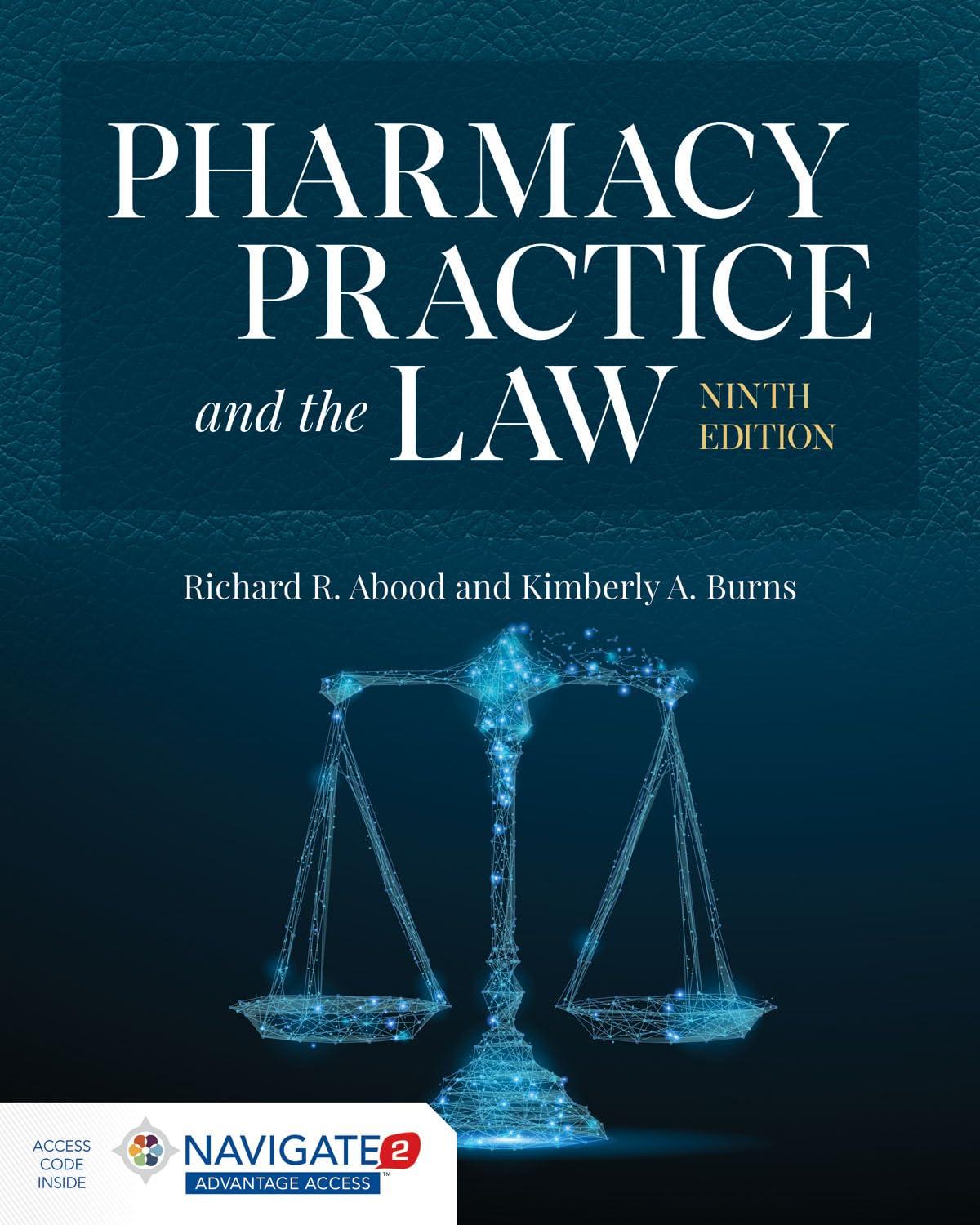The pharmacist in this case was an employee at will, which means that he was not subject
Question:
The pharmacist in this case was an employee at will, which means that he was not subject to an employment contract and as such could be terminated for any reason or no reason at all. Despite this broad authority of an employer over an at-will employee, however, an employer cannot generally terminate an at-will employee on the basis of conduct that furthers a clear and substantial public policy. For example, assume an employer orders a pharmacist to violate a state law or regulation (e.g., refill a prescription without authorization). If the pharmacist refuses and is terminated, the pharmacist may be able to successfully establish wrongful discharge if it can be proven that the law or regulation furthers public policy. The pharmacist in this case contends he was discharged for adhering to the corresponding responsibility mandates of the federal CSA. In fact, it would appear that the pharmacist distrusted nearly every controlled substance prescription and treated patients with these prescriptions very poorly. As you read this case, consider:
Why was the pharmacist really terminated?
Should the public policy aspect of the corresponding responsibility doctrine even have been an issue?
What public policy action did the court believe the regulation established?
Can pharmacists be too zealous in scrutinizing controlled substance prescriptions?
Should pharmacists be suspicious of every controlled substance prescription?
Would it be legal to terminate a pharmacist on the basis of verifying controlled substance prescriptions if the pharmacist was also rude to patients?
Step by Step Answer:

Pharmacy Practice And The Law
ISBN: 9781284154979
9th Edition
Authors: Richard R. Abood, Kimberly A. Burns





